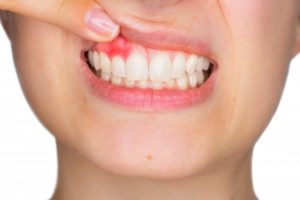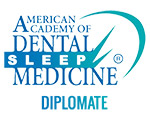 Lately you’ve noticed some changes in your oral health. When you brush your teeth, your gums bleed easily and there’s puffiness and tenderness. You’d like to know what’s causing this and what can be done to fix it. In response to your concerns, your periodontist in State College says these are symptoms of gum disease and will provide information on what causes it. As you continue reading, you’ll also learn about the value of preventive dentistry and oral hygiene in halting the onset of this troublesome condition.
Lately you’ve noticed some changes in your oral health. When you brush your teeth, your gums bleed easily and there’s puffiness and tenderness. You’d like to know what’s causing this and what can be done to fix it. In response to your concerns, your periodontist in State College says these are symptoms of gum disease and will provide information on what causes it. As you continue reading, you’ll also learn about the value of preventive dentistry and oral hygiene in halting the onset of this troublesome condition.
What is Gum Disease?
Gum disease is a condition that is caused by the growth of bacteria. These harmful critters are attracted to leftover food particles in your mouth – especially those high in sugars. The bacteria feed on the debris and grow in numbers, and if the proper steps aren’t taken to remove them, they will latch on to your teeth and gums and form plaque.
Plaque has a very acidic nature and begins to bore holes into the enamel and will eventually sink beneath the gum line. Over time this leads to gum disease, which progresses through the following stages:
- Gingivitis – The only stage of periodontitis that is reversible, gingivitis’s symptoms are red, puffy, swollen and easily bleeding gums. One option your dentist may consider is to use a high-powered antibiotic called chlorhexidine to kill the bacteria.
- Moderate Periodontitis (Gum) Disease – If the initial warning signs are ignored, the problem will advance and cause permanent damage to the bone and fibers that hold your teeth in place. A method that may be used to stop the spread of the bacteria are a topical antibiotic and scaling and root planning therapy, which involves removing the bacteria from under the gum pockets and cleaning the roots of your teeth.
- Advanced Periodontitis – Severe neglect will lead to the destruction of the fibers and bone that keep your teeth secure, leaving you susceptible to tooth loss and the possibility of the infection traveling to other areas of your body like your heart. At this point, you may have to endure surgery or have any unsalvageable teeth extracted.
How to Prevent Gum Disease
It’s relieving to know that a troublesome problem can be prevented. So here are two very simple yet effective methods to implement immediately:
- Practice Excellent Oral Hygiene – As stated earlier, gum disease is caused by the growth of bacteria, but when you brush and floss your teeth at least twice a day, you take a huge step in the direction of preventing this nuisance of a disease from developing and spreading.
- Maintain Regular Visits – Along with maintaining your dental care at home, it is equally important to visit your dentist at least semi-annually for checkups and cleanings. These two services will protect you from the growth of this silent disease and also provide you with an extremely clean oral cavity.
Are you ready to take a bold step toward a healthy future for your mouth, teeth and gums? If so, then reach out to your dentist in State College today to schedule your first appointment.
About the Author
Dr. Donald M. Marks earned his Doctor of Dental Medicine degree from the University of Pittsburgh and since, has gone on to complete advanced training modules from the Institute for Advanced Dental Studies – Periodontal Prosthesis. A member of several professional organizations, Dr. Marks practices at Donald Marks Family Dentistry and can be reached for more information through his website.




